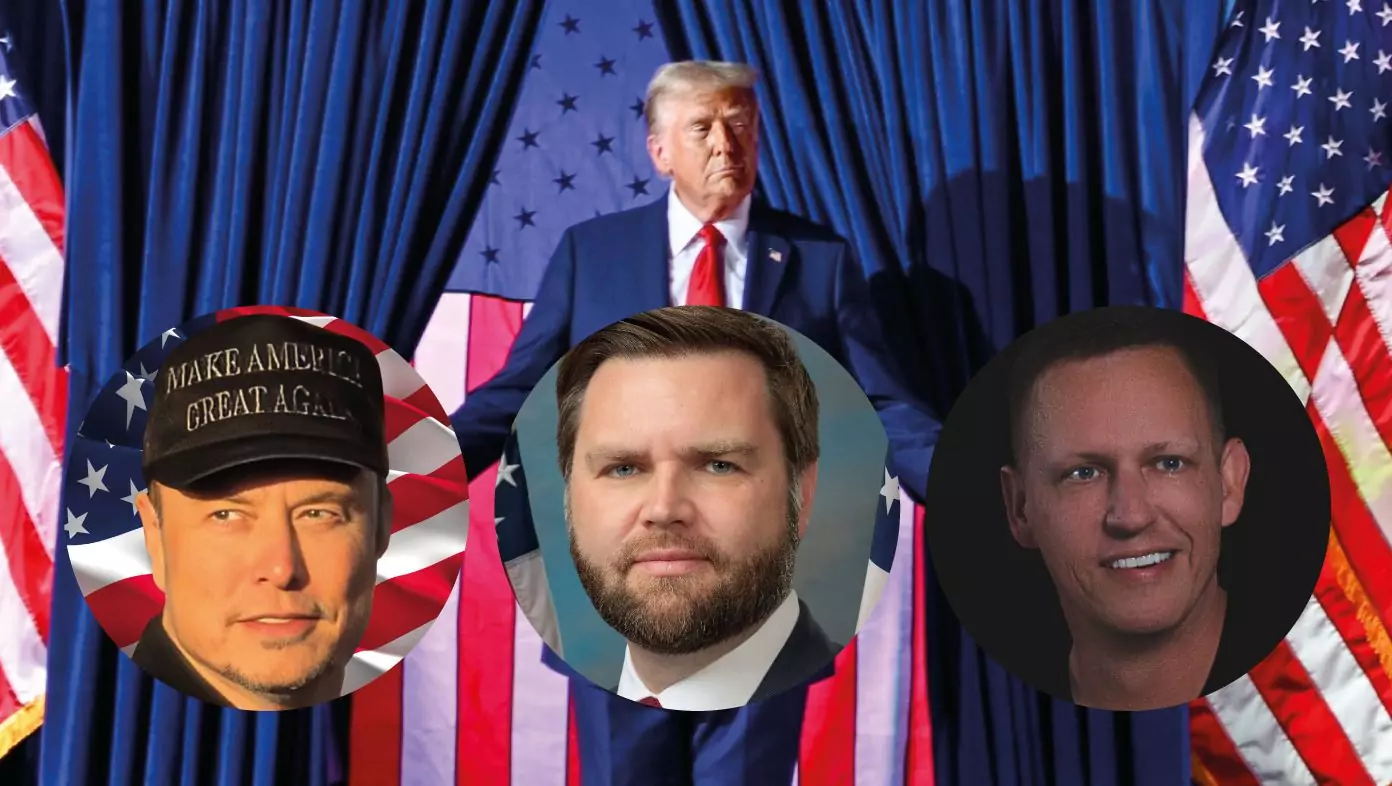Hollywood sided with the Democrats en masse, but did Silicon Valley make the difference in this election? In the complex formula put in place by Donald Trump, which brings together the interests of both the upper and lower classes of the American economy, an important role was played by the start-up economy.
Beyond the chronicles of conventions, megaphones of political propaganda, the influence that the tech economy, the start-up economy and venture capital have had and will continue to have at many levels has not been thoroughly analysed.
The involvement of J.D. Vance as Trump’s vice presidential candidate has ignited the interests of the entire start-up industry. Behind the Trump-Vance ticket, one can see the intellectual and economic influence of Peter Thiel, Vance’s financial and professional mentor and supporter from his university days and then in the world of venture capital, up to his candidacy for the Senate for Ohio and now for the vice-presidency of the United States.
Peter Thiel was and is a Trump supporter, although he expressed some second thoughts about his first presidency, remaining opposed to supporting him again until the announcement of the Trump-Vance ticket. He is one of the architects of the innovation economy, a former academic at Stanford, who left his university career to found and finance start-ups. In his book, which has become almost a cult among startuppers and entrepreneurs (and others), Zero to One, one can read about the political and economic strategies that have shaped Silicon Valley in recent decades and that could shape the future of the next American presidency, what Trump calls the ‘Golden Age’. Perhaps it would be more accurate to call it the ‘Last Tech-Gold Rush’.
Peter Thiel is also one of the members of an exclusive group of investors known as the ‘PayPal Mafia’, composed of the founders of PayPal, including Elon Musk, with whom he has founded and supported several start-ups, including SpaceX. Thiel has contributed to the development of numerous start-ups, scaleups, and unicorns, from Facebook to his own Palantir, an innovative start-up specialising in the analysis of big data through artificial intelligence, with the US Pentagon among its main customers.
The alliance between Vance and Thiel catapulted Elon Musk into the political arena, with endorsements, funding and support for his candidacy in Trump’s cabinet giving it considerable strength and characterisation.
Today, Musk embodies the image of the genius-entrepreneur, a symbol of an American economy that invests in building private monopolies: just think of the $465 million received from the Department of Energy for Tesla in 2010 or the $2.6 billion from NASA in 2014 to develop space vehicles with SpaceX.
Musk is dominating space, at least the space around the Earth, almost ironic for a country that has always seen antitrust as a tool to curb monopolies. While we wonder what it means to monopolise space, Europe trudges on how to make a law that directly regulates space rockets. Imagine an asteroid on a collision course: Musk could be the only one with a fleet of rockets to leave the planet. Then, in the event of an emergency, who would be rescued? It is a thought-provoking question, but more importantly: what would be the principle that would save a few?
But while one part of the innovation economy has taken a stance, we can see how other leading players in the American economy, such as Warren Buffet in the financial sector and Jeff Bezos in the tech sector, have chosen to remain neutral, avoiding financing or openly supporting any candidate. However, there have been supporters of Harris, such as Bill Gates and Reid Hoffman (also a member of the aforementioned PayPal Mafia).
With the election won, it is clear that Trump has attracted the interest of entrepreneurs with visions similar to his own, but the choice of engaging the icons of the new dream men all future-oriented, innovators and investors, has helped to outline a vision of a progress-oriented America, which has given strength, character and identity to the campaign.
America once again embraces the figure of the entrepreneur who becomes President of the United States. Can the conflict of interest, which is supposed to protect everyone’s interests, really be archived? In the past, in America, Reagan, an actor, became President of the United States. Is this the revenge of the start-up scene? It is worth remembering that this is where the jobs of the future are born. Will it be easier, in America, to see a figure like Elon Musk as the next president in the future (not him as he was not born in the US), or the first woman? In Europe and Italy we have overcome the gender gap in female leadership, while on the front of innovation and the creation of new economies, we still have much to learn from the mindset and pragmatism of the Americans. And it is precisely Trump’s victory that could play a key role in stimulating Europe to be more decisive, more united, stronger also on the economic, technological and innovation front, as it has already shown itself to be on those of regulation and sustainability, thus becoming more relevant on the global scenario. (pictured is a collage with Trump, Musk, Vance and Thiel, the images come from the websites and social profiles of the people pictured)
Antonio Prigiobbo is a journalist, author, founder and director of NaStartup
ALL RIGHTS RESERVED ©
